The USA faced their first real adversity in the final.
January 15, 2018 by Kingsley Flett in News, Recap with 0 comments
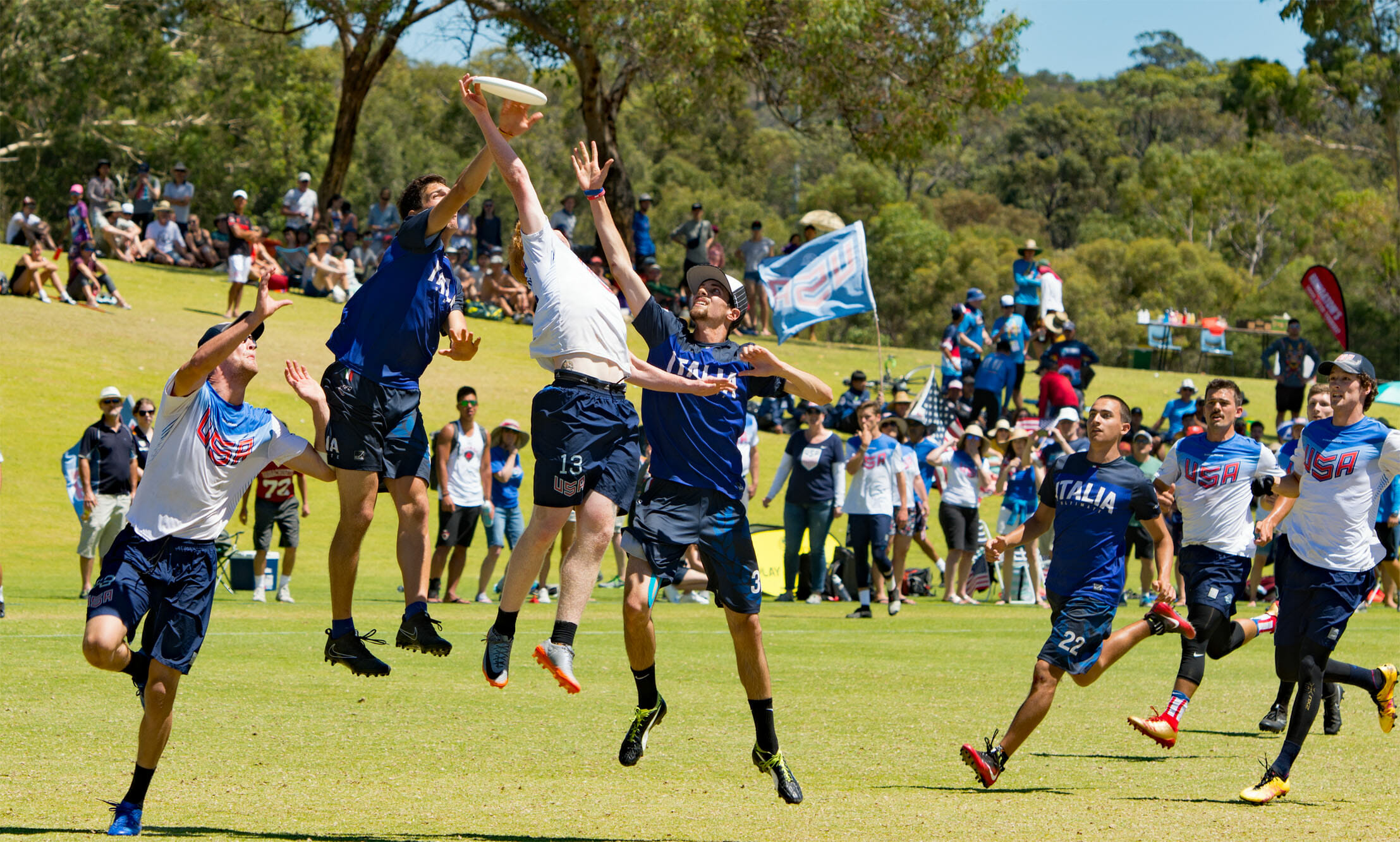
Our coverage of the Under-24 World Championships is presented by VC Ultimate. All opinions are those of the authors. Thanks for supporting the brands that make Ultiworld possible!
The United States National Team in the Men’s Division claimed the gold medal at the Under-24 World Championships with a dramatic 15-13 victory over Italy, coming back from their first halftime deficit of the tournament to land atop the podium. The scorching hot Italian offense entered the game as significant underdogs, but wasted little time in showing the Americans they were fearless in the face of their undefeated foe. However, the US team’s depth and consistency eventually overwhelmed the Italians.
Italy drew first blood in the matchup, pressuring Ross Barker into a reset miscue that Mossimo Vagliviello swatted down. Rushing to get it moving, the Italians found a high stall option, and then quickly struck on a break side backhand from Enrico Mastroianni to Vagliviello for the bookends and a 3-2 lead. Vagliviello was on the receiving end of the game’s next break as well, a red zone possession garnered after a Barker drop. When Italy’s defense opened the next point with zone defense, a rushed throw from Joe White gave Italy the disc a few yards away from a remarkable 6-3 lead. The offense switched fields, and Luca Tognetti found room for a forehand up the sideline to Marco Dellavedova, who took advantage of some disc-watching from Parker Bray.
The Americans struggled to deal with such an aggressive approach from the Italians. Their whole game was frenetic and swirling. Their marks barraged the thrower with bouncing feet and waving limbs. Cuts could come from anywhere in their vertical stack, particularly as the front of the stack vacated their space, and the unpredictability forced US defenders to spend more time thinking about what was coming next rather than locking down an individual’s next best option. And after turns, the Italian team set the tempo, keeping the US from ever regaining their footing.
Additionally, their defense forced to US to use spaces they weren’t as comfortable with in their horizontal set. “They were denying us the middle,” said US coach Joe Durst. “Our guys weren’t used to being allowed such little room.”
In an unexpected 6-3 hole, having given up two straight breaks and three total, the Americans sent out a D-line to stem the tide. They weaved through the Italian zone, playing sideline to sideline until the space ahead opened up, getting a great catch from Carl Morgenstern on their lone errant throw, and a swing around the horn hit Tim McCallister for a hold. A few points later, Italy bungled a short throw just outside their own endzone, seemingly caught in their own chaos. Jonah Wisch calmly approached the disc as his teammates set up a vertical stack. A darting cut from Jack Williams gave him enough room and Wisch flipped a high release backhand over the mark to the breakside for the Americans’ only break of the first half, making it 7-6. It was Williams’s first appearance of the game with the D-line. Despite a couple of chances to extend the first half, it was the Italians who scored after a blading huck landed them in scoring position, and they converted the next throw into an 8-6 advantage.
The struggles of the United States’s offensive unit had sprung up in earlier matchups but were exacerbated by some absences. Ben Sadok led the team in touches during the bracket and had been their most consistent offensive presence with just a single turnover. A hurt shoulder limited Sadok to playing a single early point in the final. They were also without Adam Rees, who also was turnover-free during bracket play and is known for his steady play.
To this point, the Italians had another edge besides their fast paced attack: their ability to win contested discs. Of their five first half hucks, four were contested, and their receivers converted three of those. Those percentages proved unsustainable as the team went into the second half and played a key role in their unraveling. Five of the Italians’ six second half hucks were contested, and they caught only one against tight defense.
Both teams were able to hold through the first couple of points in the second half, but a three goal run from the United States ratcheted up the intensity. The D-line offense drove steadily upwind, attacking the mark until the downfield overcommitted to the break side, freeing up Erik Hotaling to collect a crossfield throw from Sam VanDusen. Hotaling hit an uncovered Barker to make it 10-9, Italy. On the following point, an Italian swing missed by inches, giving the US a short field, and Cam Wariner concluded the call-extended red zone possession with another break to tie it at 10-10.
With the pressure dialed all the way up, it was clear that the Italian team was simply running out of gas. Aside from Williams, who led the Americans with 17 points, no US player logged more than 11 points played in the final. By contrast, vital Italian athletes — Tognetti, Vagliviello, Filippo Simonazzi, Tobias Mine — all played 16 or more points, including Mine and Tognetti’s 19. In counterpoint, however, it simply might have been that the Italians knew how to manage the long periods off they had late in the bracket.
“With the day’s rest, they were able to keep their stronger players on for longer, which took away the advantage I felt we had in the depth of our squad,” said Durst.
At 11-11, the two teams played perhaps the game’s most important point, a lengthy affair between the US D-line and Italian O-line. A layout poach block from Wariner, one of the team’s top defenders, forced the final turnover of the point. Wariner’s inside break to Sawyer Thompson gave the United States their first lead since 2-1. In the scorching Australian sun, the long point must have taxed the underdog Europeans. After Italy held to make it 12-12, their defense applied some pressure, but the US survived, and Joe White put up a floating backhand to Jack Williams, who went over Tognetti for the sky.
The feisty Italian team had a last gasp, showing their grit when down 14-13, in need of a hold. Mine made an explosive leaping catch on the break side sideline, then immediately shot a forehand up the inside lane of the stack. The disc flattened, cutting through the wind as Michele Angella1 valiantly chased his team’s chance at a gold medal. His bid came up inches short. Carl Morgenstern went on a deep run after a reset and caught the defense off guard, catching a huck from Codi Wood with separation to win it.
The Italians were led by Tognetti and Mine, although Valgiviello and Angella topped the stat sheet. Angella notched three assists and one goal, while Vagliviello tallied three goals of his own.
On the US side, Wariner’s one goal, one assist, and three block effort and sophomore Joe White’s three goals and two assists paced the way. Mekler and Jack Williams added three goals and an assist a piece, while Alex Olson led the team with three assists. Jack Williams was one of the team’s most important contributors, switching over for seven points with the D-line during the comeback.
For Italy, there’s a lot to be proud of. It’s the first time the country has medaled at the U24 championships and only the third time a European team has done so, making them the first men’s team to accomplish the feat. They fought through prequarters, scoring shocking victories, including trouncing a German side that had beaten them earlier in the tournament. Italy lost to the US 15-4 in pool play and nearly upended them in the final, showing improvement and determination. Certainly, they earned priceless international respect.
The US got the push they probably secretly hoped for, a narrow victory they can remember and feel proud of, after many blowouts. The bracket proved a testing environment for the Americans, and they likely emerged stronger for it, while still living up to their gold medal expectations. They won’t lower for the upcoming U20 tournament, the World Ultimate Club Championships, or the next cycle of U24 championships, either.
Kingsley’s Take
They were singing something to the tune of ‘Yellow Submarine’ in Italian. When I asked them afterwards what it meant, they laughed and said it was something they copied from the Japanese and was just a nonsensical set of sounds. That’ll be my lasting memory of the mens U24 final – the singing, from the Italians and the other squads whose weeks had finished and had come to support them. It’s not that everyone hated the Americans: Joe Durst’s squad had conducted themselves with class and dignity all week. It was just the natural inclination of people to support an underdog and root for the upset.
It’s called confirmation bias – we see what we want to see and delete what doesn’t fit our preconceived patterns, and so the cultural stereotypes might be a bit too easy I suppose: the organized Japanese, the methodical Germans, the polite and reserved Brits, the impolite and unreserved Aussies, the passionate and emotional Italians, and so on. But I’d certainly seen enough examples of this behavior from each of these nations to feel there’s a smidgeon of truth behind the labels. The Italians weeping openly at the end of the game certainly showed how they are unafraid to express their passion.
Australia Takes Bronze
The Aussies, who fell to the USA in the semifinals, won the bronze medal with a 12-8 win over Germany in the third place game.
Alex Gan tossed five assists and Sam McGuckin had three goals and an assist in the win. Much of the game was even, with Germany even outperforming Australia in the second half, but a monstrous 6-0 run from the Aussies to take half 8-2 left no opportunity for the Germans to come back.
Photo Gallery
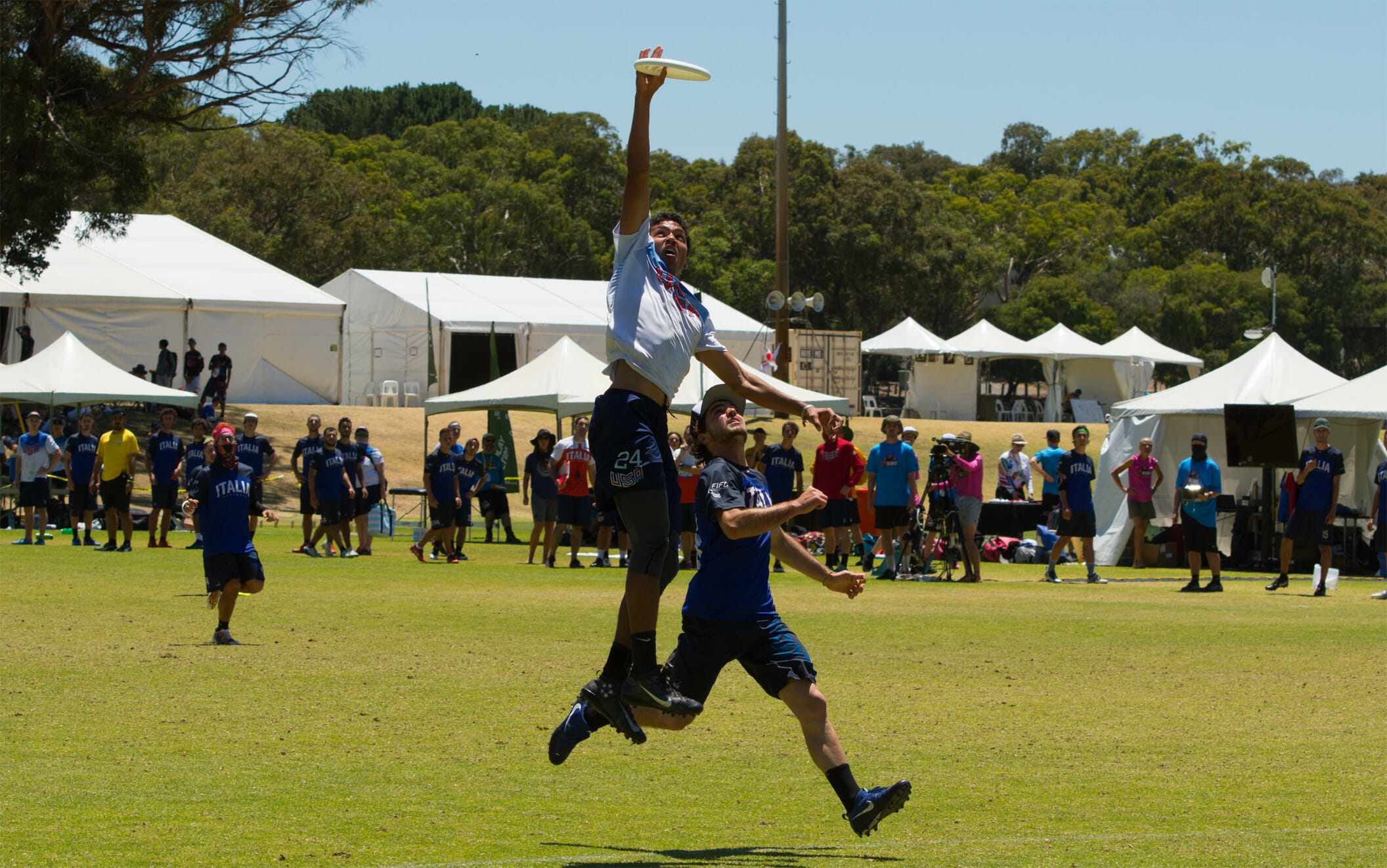
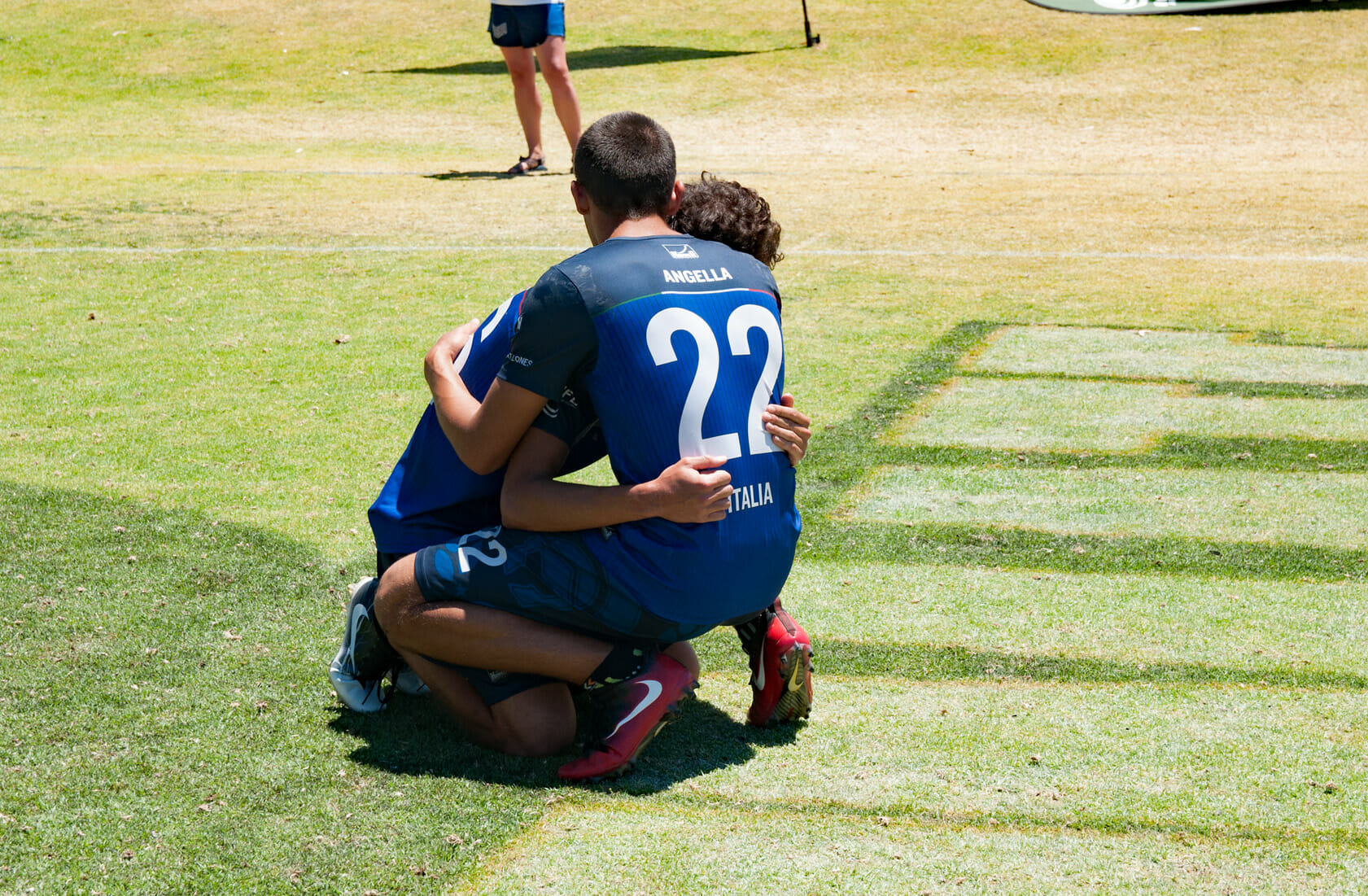
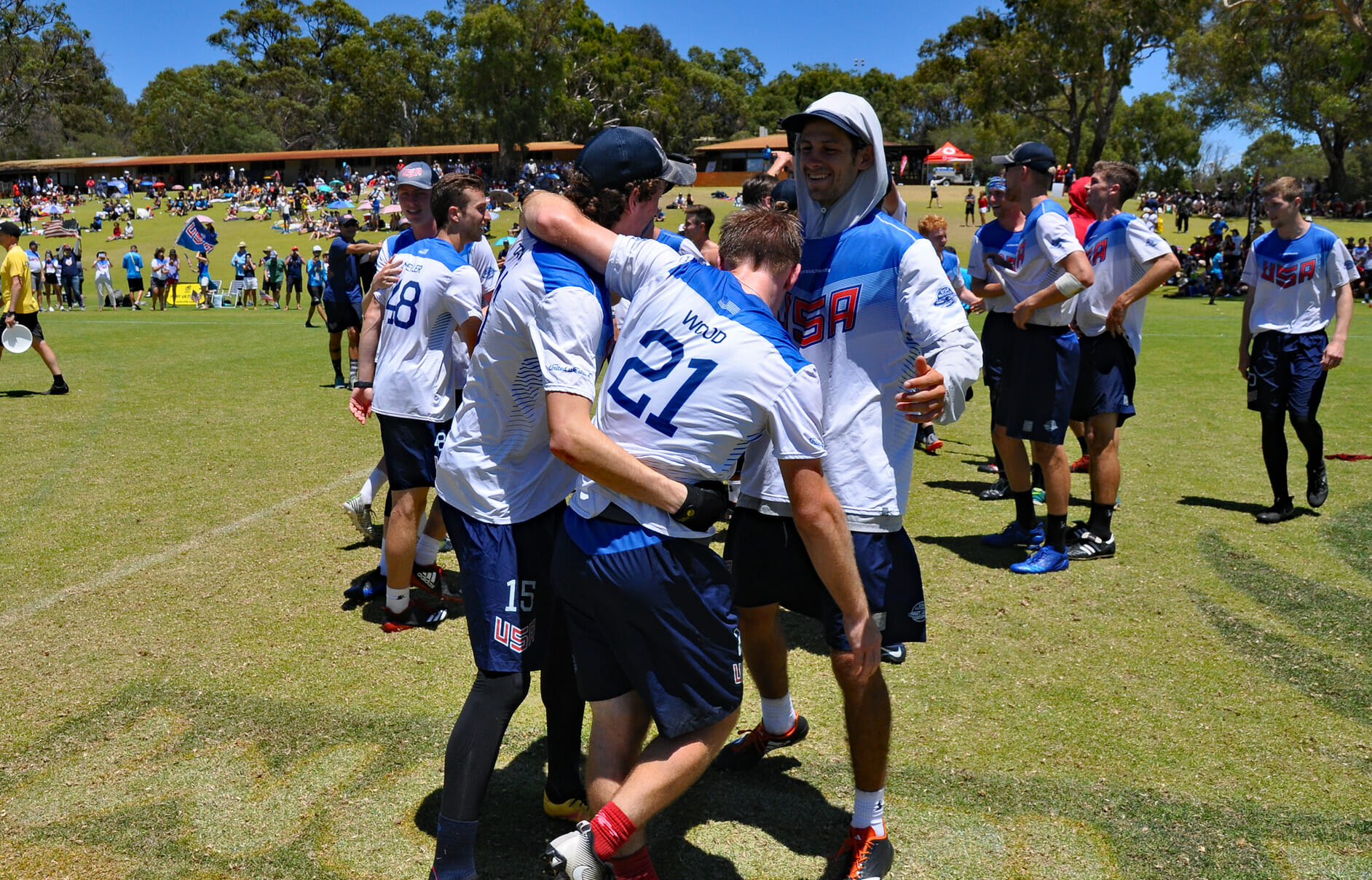
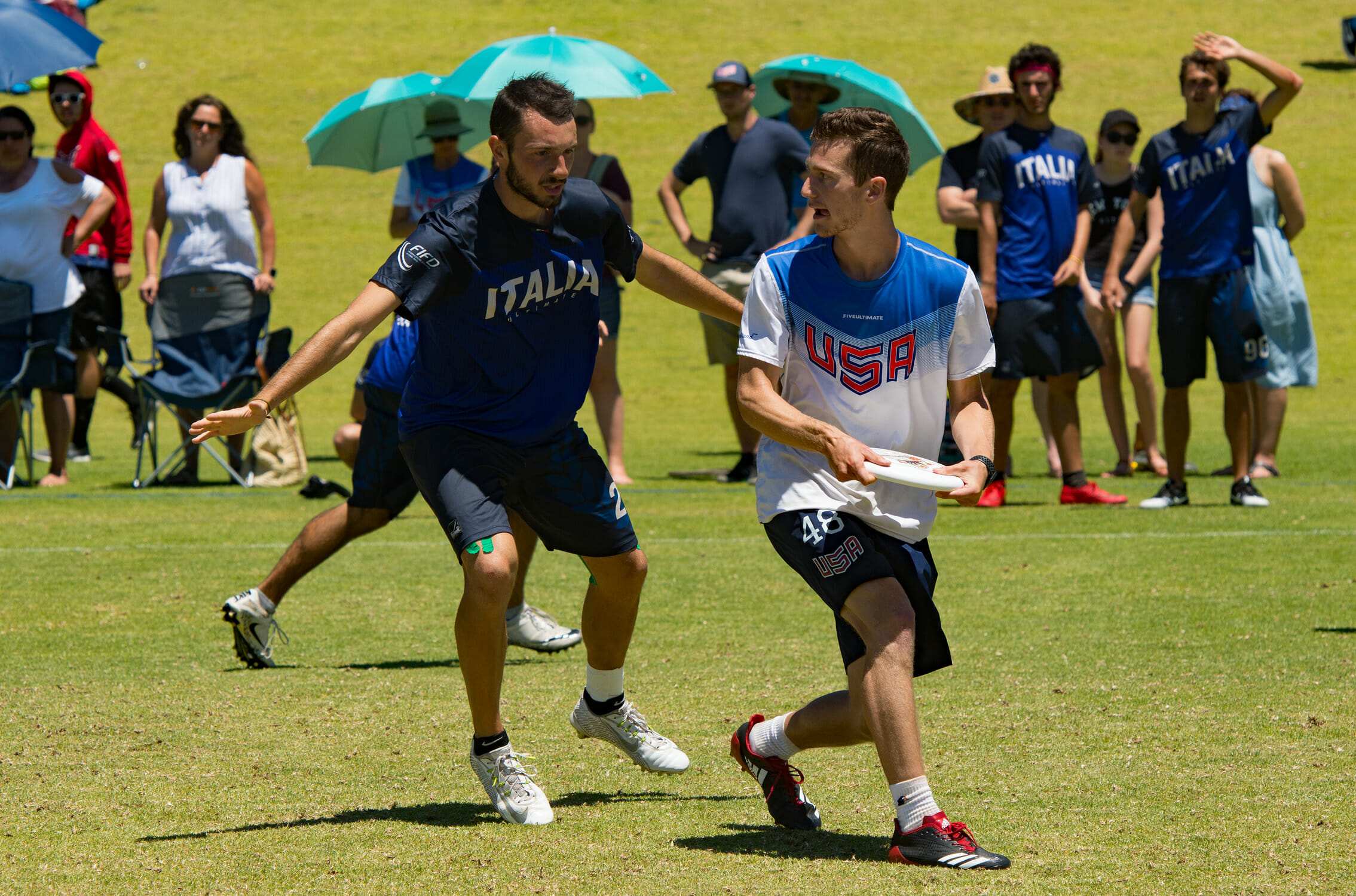
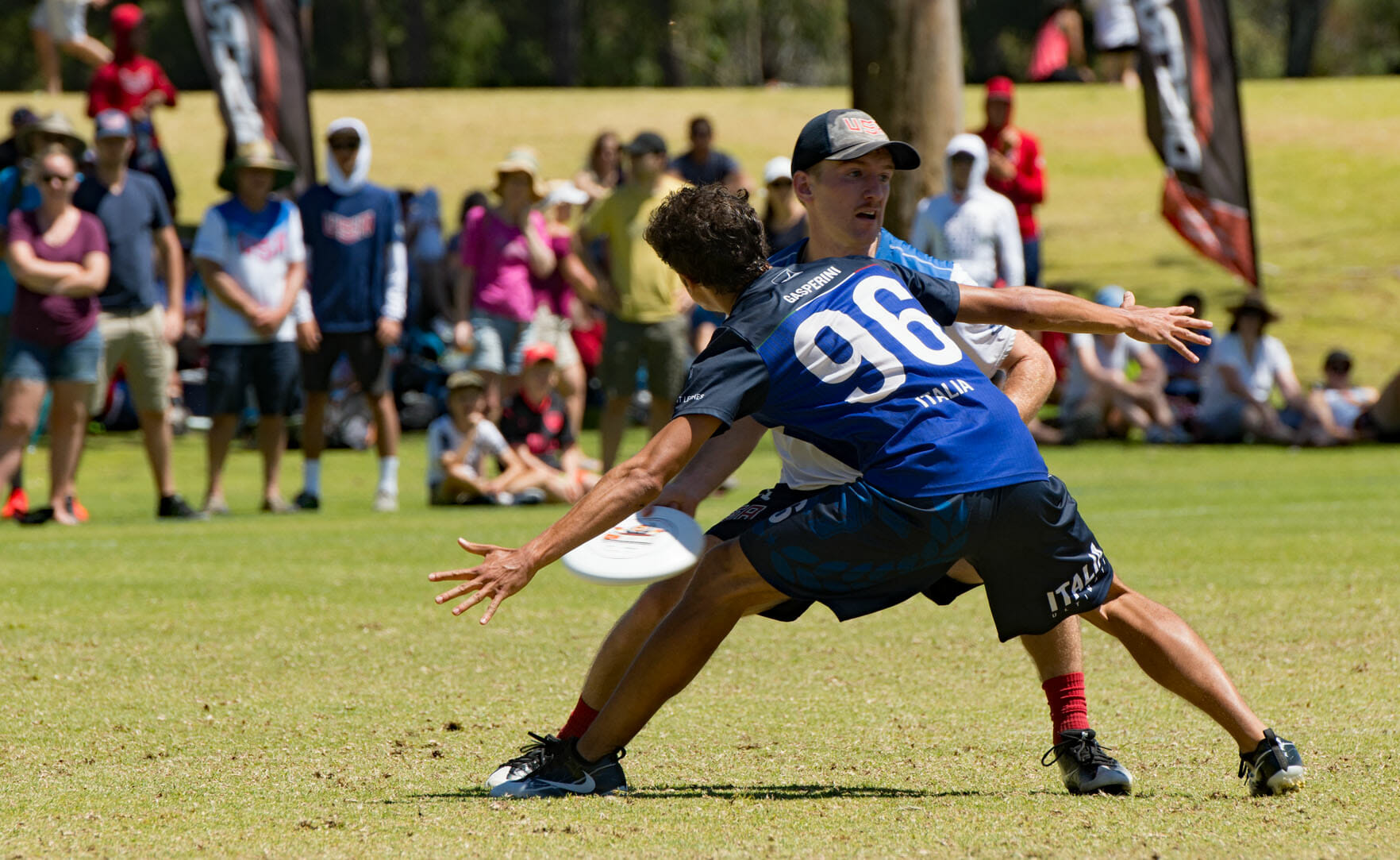
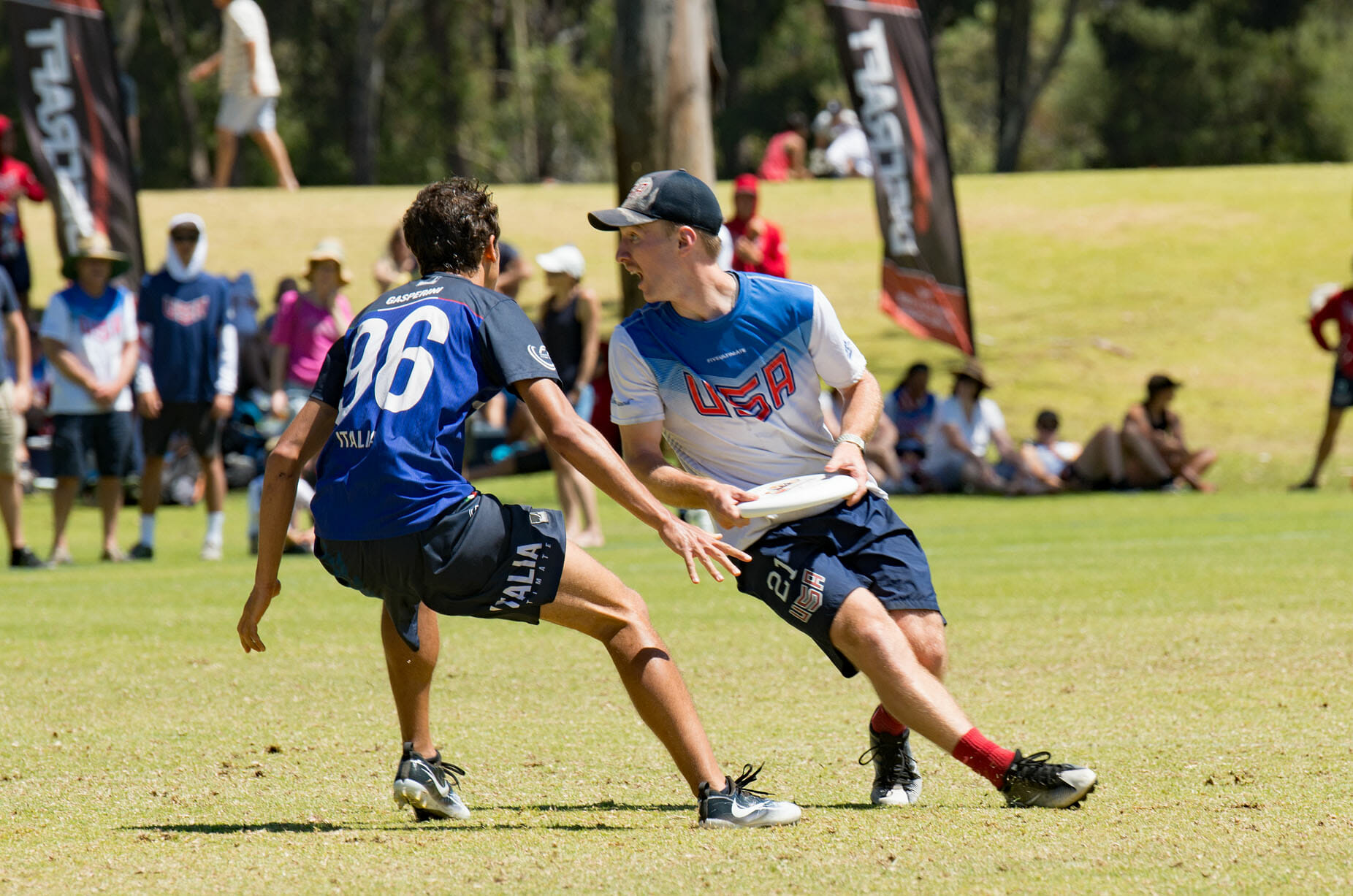
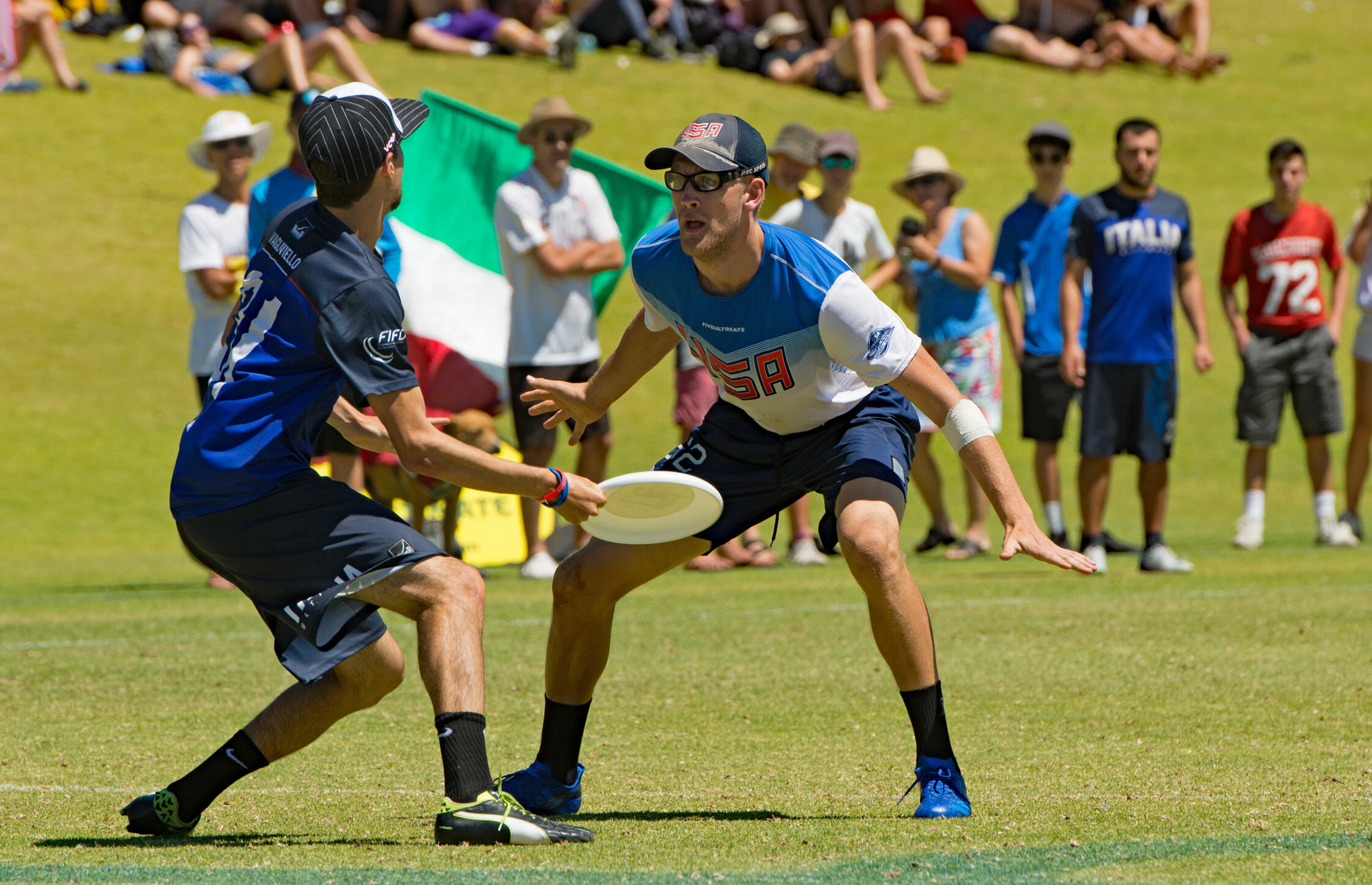
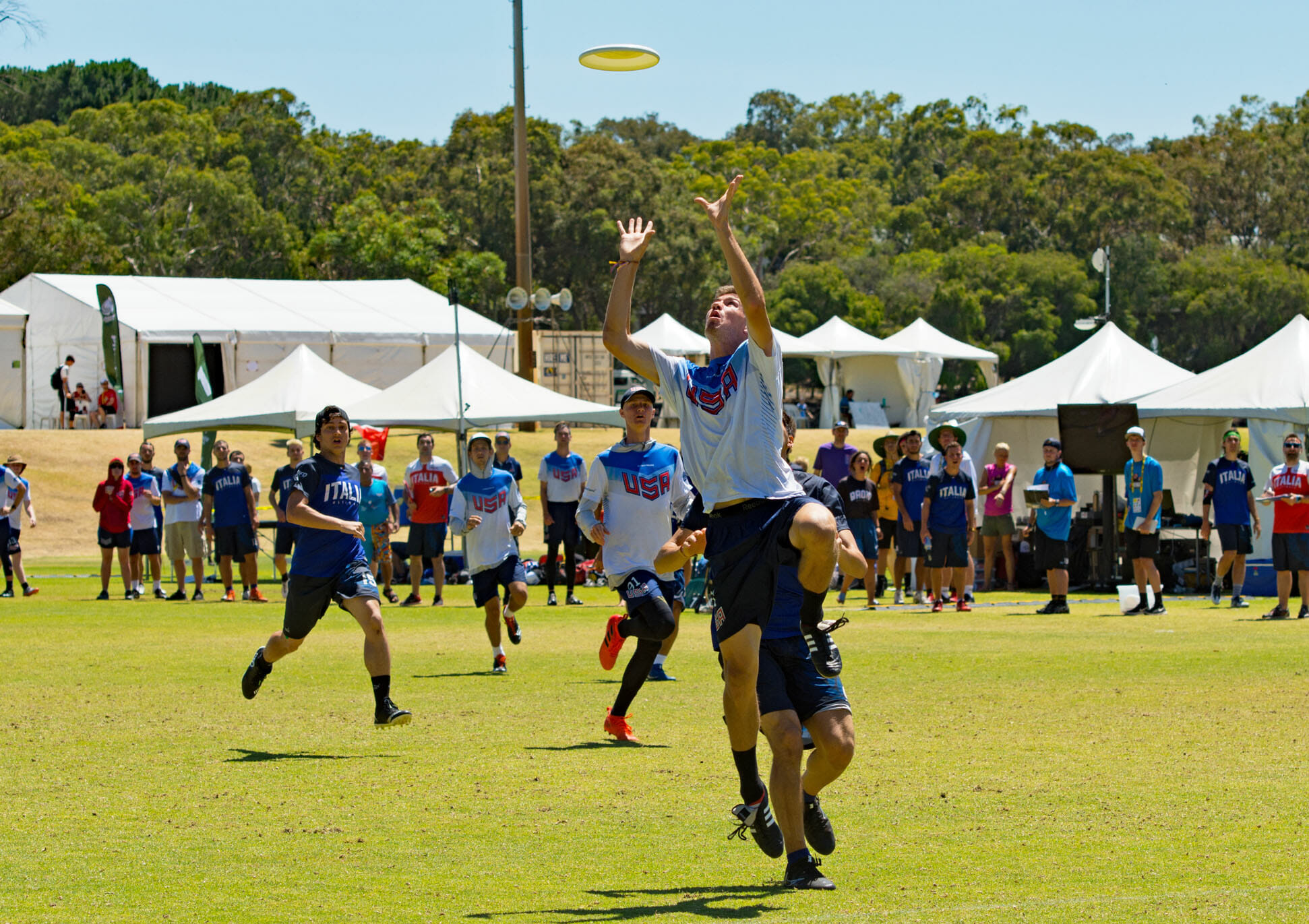
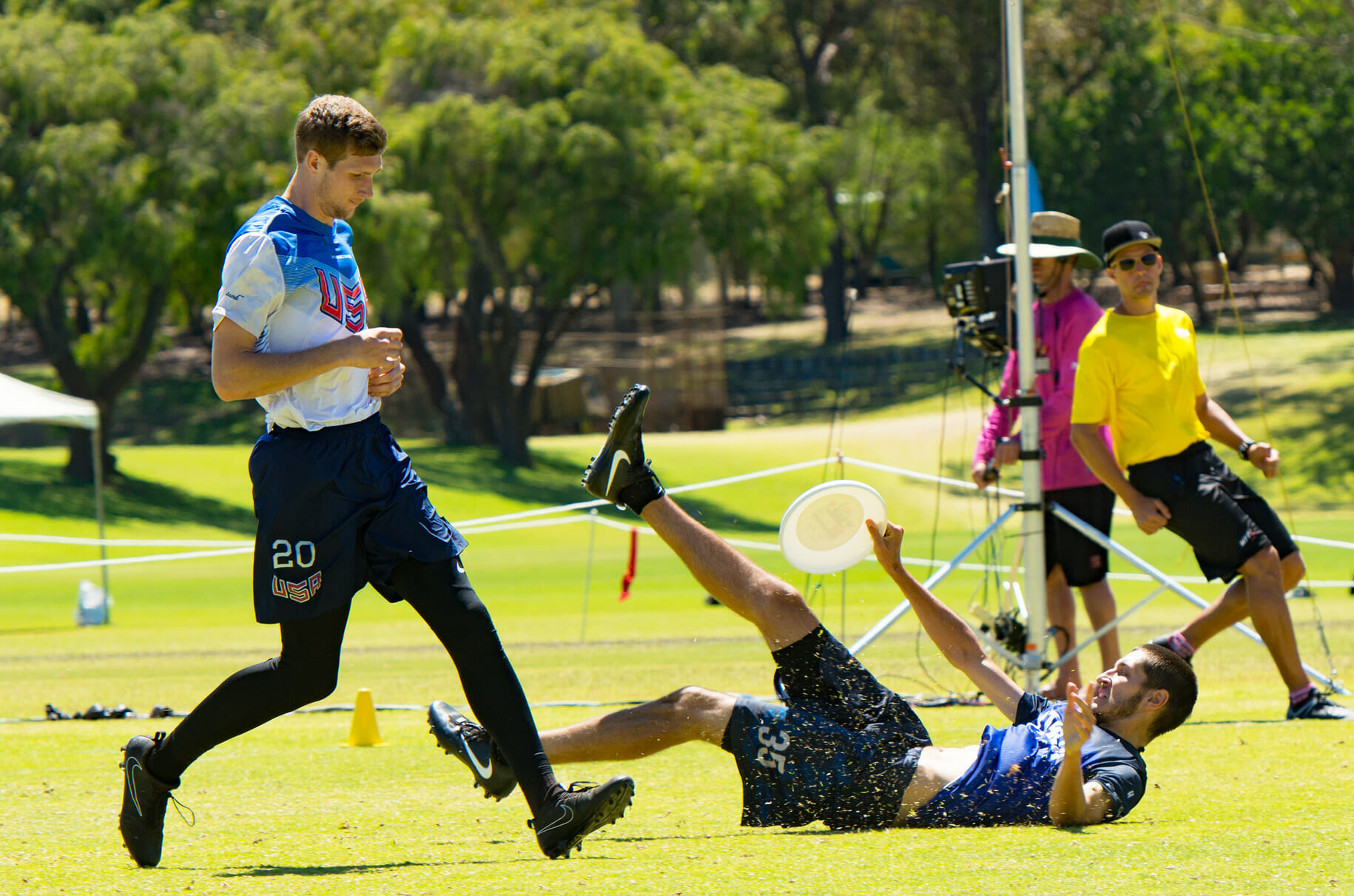
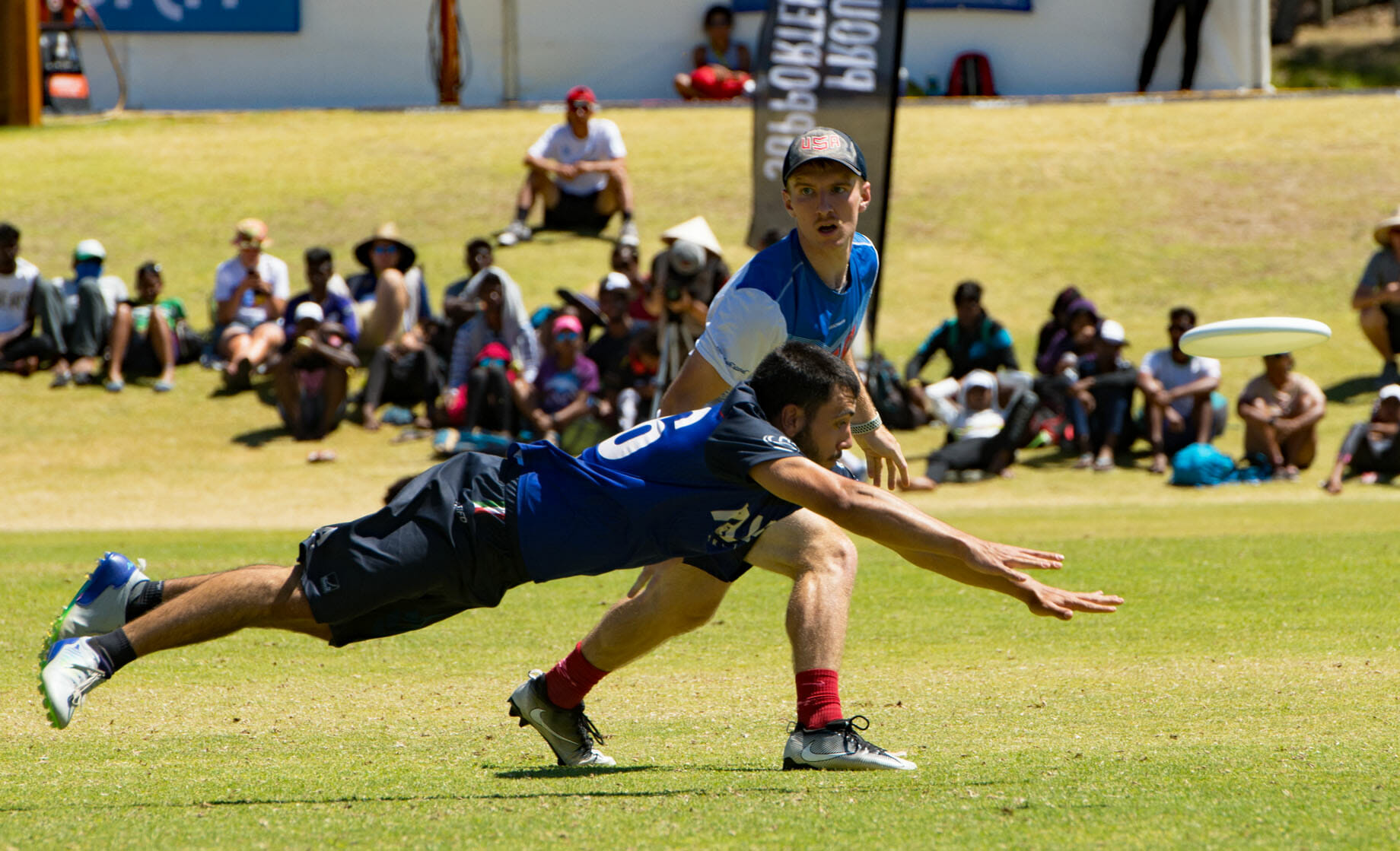
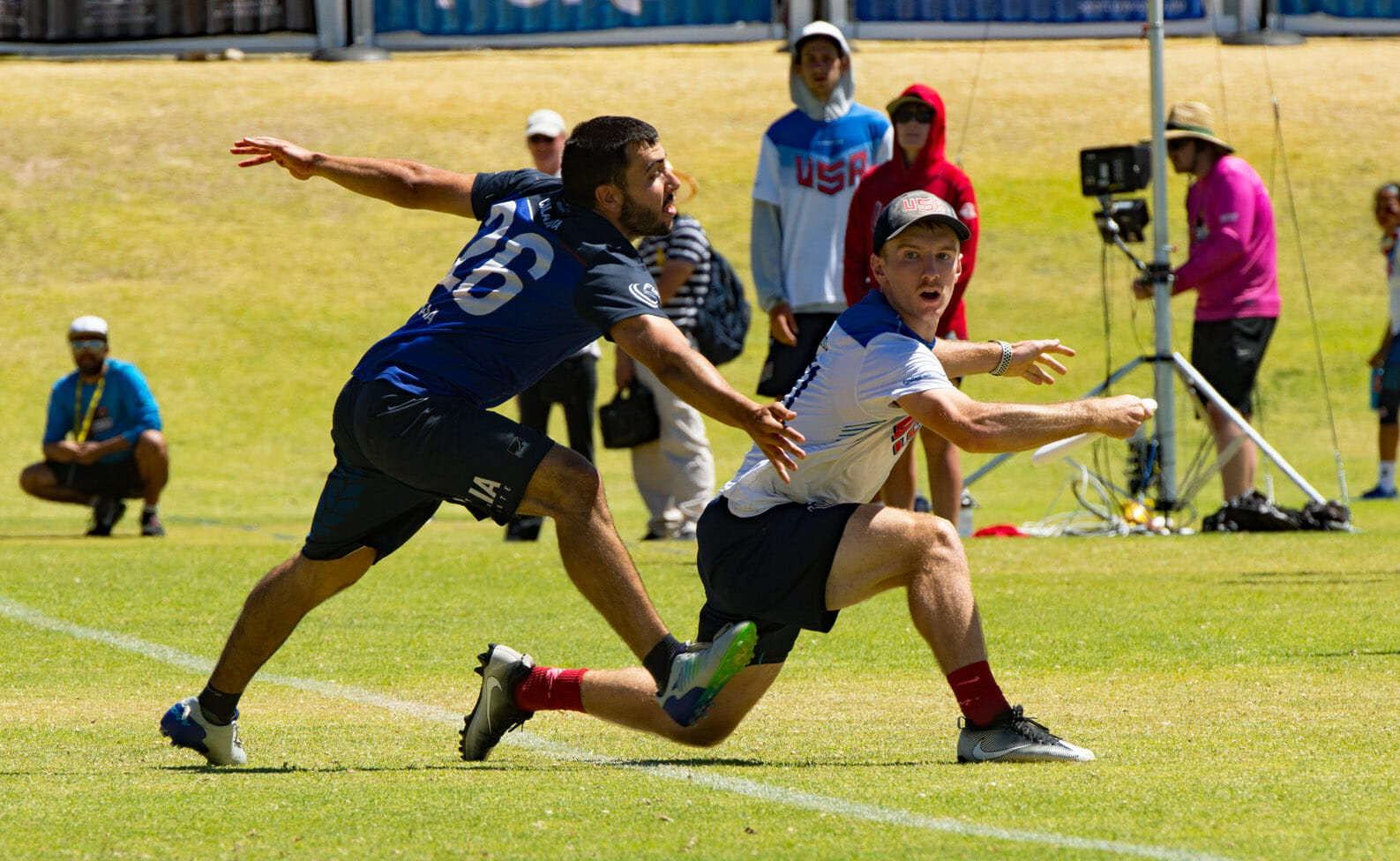
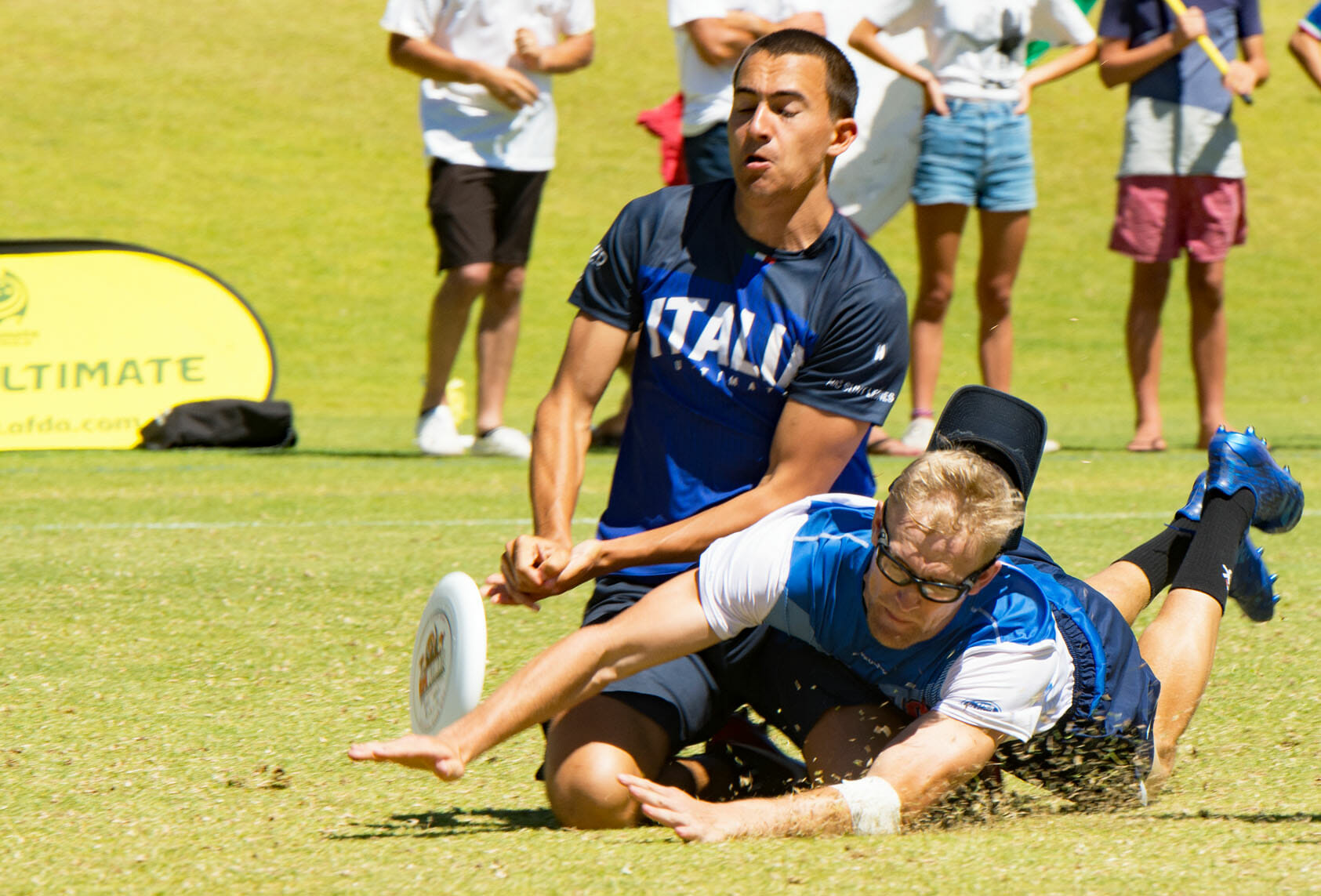
He played 13 points, still more than every US player on the field ↩